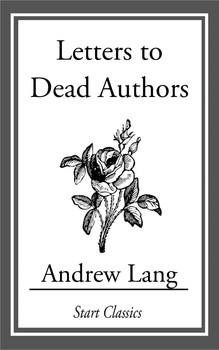LETTER–To Robert Burns
byLetter to Robert Burns begins not with solemn tribute but with the familiar cadence of fondness, both for the man and the myth he became. You were not just Scotland’s poet—you were its pulse, its raw nerve, its laughter after loss. Your name, once printed in Kilmarnock, echoed far beyond the fields of Ayr, finding kinship in places where hearts break and songs rise to meet the pain. When Scots raise a glass in your name, it is not just nostalgia. It is recognition of something unshaped by refinement—a voice that came from the earth and sang about what mattered, whether it was harvest or heartbreak. You were no plaster saint, and in that lies your strength. Your flaws did not weaken your words; they gave them soil to grow in. With each verse, you carved out truth not with cold logic but with warmth, with rhythm, and with a refusal to pretend.
You have long been draped in both reverence and caricature—burnished in bronze and wrapped in tartan sentiment, yet often misunderstood. The world loves to drink to your health, even as it misquotes your best lines. And while your lyrics are sung loudly at suppers in your honor, they are sometimes stripped of the complexity that made them endure. You were more than the man who loved whisky and women. You were also the man who saw hypocrisy and challenged it in rhyme. There was clarity in your rebellion and courage in your honesty. Yet, the ease with which some lift your image has made it harder to hear your real voice beneath the toasts. You were never trying to please the polite society of Edinburgh or win the favor of London’s literary elite. You were trying to write a world as you saw it—untidy, tender, proud, and aching for justice.
Your poetry, even in its simplest lines, contains the substance of lived experience, and no affectation can disguise its roots. You wrote of ploughs and primroses, of passion and poverty, and made them equal subjects of beauty. Like Theocritus in ancient Sicily, you did not need marble courts to find muses; your inspiration walked barefoot on Scottish soil. Where others imagined shepherds and nymphs, you found Tam o’ Shanter on a horse, barely sober, racing from witches. That humor, spiked with fear and truth, remains unmatched in its blend of the folk and the profound. It’s easy to celebrate you now, but what is less easy is acknowledging how rare it is for someone to speak so freely—and still be heard. You weren’t polished, but you were precise. You never lied to your reader, even if the truth cost you peace.
Your life, however, is still debated—held up by some as tragic proof of a talent crushed under poverty and passion, and by others as a romantic cautionary tale. There is talk of what might have been if you had written in gentler times, if critics had been kinder, if you had been less burdened by debt or desire. Would you have lived longer, loved more quietly, written less often? Perhaps. But perhaps also, something essential would have been lost. Would “A Man’s a Man” carry the same force if it weren’t written by someone who had tasted the shame of inequality? Could “Ae Fond Kiss” sound so pure if you had not known the ache of departure firsthand? It’s tempting to imagine a world where you were more comfortable, but comfort rarely inspires poetry that burns through generations.
You gave more than you received, and the world is better for it, even if it often came at your own expense. Your refusal to compromise was not just artistic—it was moral. You stood in the space between approval and truth and chose the latter, even when it left you alone. There are lines you wrote that feel as if they were etched yesterday, not centuries ago. In an age where poets can be commodified, your words remain stubbornly alive, too personal to be product. You didn’t ask to be a monument; you asked to be understood. And those who listen closely still find, in your voice, a companion against hypocrisy, a fellow traveler in grief, and a brother in joy.
In writing this, it becomes clear that your legacy is not simply what you wrote—it is how you lived through what you wrote. You brought the ordinary into the realm of poetry, and in doing so, made the ordinary noble. Your voice, more than Scottish, is human—earthy, flawed, and deeply true. While others sought immortality in ink, you found it in honesty. Not every stanza of yours is perfect, but perfection was never your aim. You gave us something better—something lived, something felt. That is why your poems will be read as long as people still gather by firelight, still weep at parting, and still laugh at their own foolishness. Your verses, like your life, remain untamed, unforgettable, and wholly yours.

